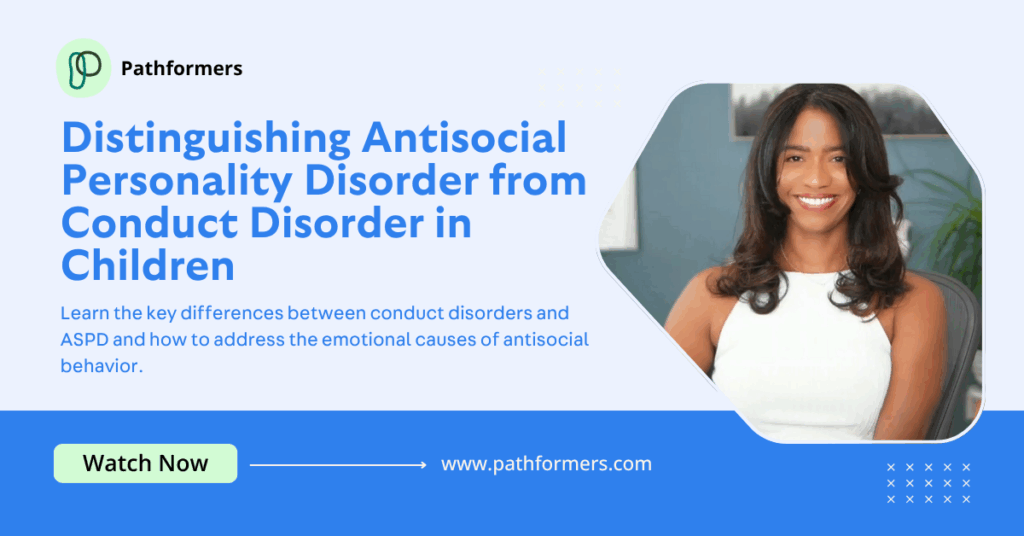In this video, we break down the difference between conduct disorders and antisocial personality disorder (ASPD) in children, helping parents understand the emotional roots behind antisocial behavior. We provide strategies for early intervention and how to support your child through their behavioral challenges.
Distinguishing Antisocial Personality Disorder from Conduct Disorder in Children
Common Pain Points
Lorem ipsum dolor sit amet, consectetur adipiscing elit, sed do eiusmod tempor incididunt.
Confusion Between Conduct Disorders and Antisocial Personality Disorder (ASPD)
Parents may struggle to differentiate between conduct disorders, which are often diagnosed in childhood, and the development of ASPD, which can emerge later. This confusion can lead to misunderstandings and delayed interventions.
Focusing on Behavioral Symptoms Without Addressing Underlying Issues
The diagnostic focus on conduct disorders, which emphasizes behaviors like rule-breaking or aggression, can prevent parents from addressing the deeper emotional and relational causes of antisocial behaviors. This can result in cycles of misbehavior without understanding the root psychological issues.
Fear of Recidivism and Limited Options for Treatment
Parents may feel powerless when their child’s antisocial behaviors continue or escalate, especially if treatment focuses primarily on punishment rather than rehabilitation. This contributes to frustration, especially when efforts to change behavior seem ineffective.
Module Benefits
Lorem ipsum dolor sit amet, consectetur adipiscing elit, sed do eiusmod tempor incididunt.
Distinguish Between Conduct Disorders and ASPD
his module will help parents understand the difference between conduct disorders and ASPD, providing clarity on how antisocial behaviors develop and what early signs to look for. You'll learn how to identify the underlying psychological patterns that contribute to these behaviors.
Go Beyond Behavioral Symptoms to Address Root Causes
We’ll guide you in recognizing how your child’s challenging behaviors are linked to deeper emotional and relational issues. By focusing on the underlying psychological organization, you'll be able to intervene more effectively and address the causes of the behavior, not just the symptoms.
Focus on Rehabilitation and Long-Term Support
This module emphasizes the importance of rehabilitation over punishment. You’ll gain strategies for working with your child’s healthcare providers to support long-term emotional development and reduce recidivism, fostering a healthier path toward self-awareness and positive change.
Help Steer Your Child’s Development
Subscribe to our newsletter for exclusive video updates, expert parenting strategies, and the latest insights in child development and mental health.

